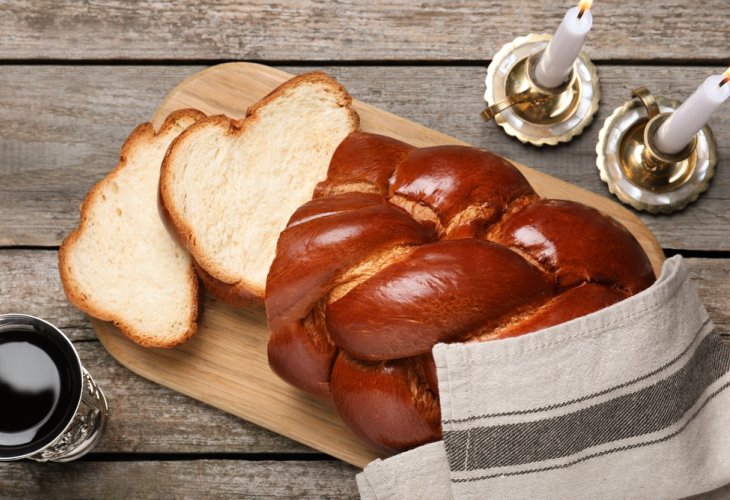Beginners Guide
Why Shabbat Is More Than a Day Off
Discover the deeper spiritual meaning of the Jewish Sabbath and its role in Jewish identity
 (Photo: shutterstock)
(Photo: shutterstock)For many, the weekend offers a chance to rest, recharge, and escape the demands of daily life. But Shabbat, the Jewish Sabbath, is not just a day off from work and school. It is a 25-hour sacred window in time during which a special holiness descends upon the world. According to Jewish tradition, that holiness is experienced by those who observe Shabbat as part of their covenant with the Divine.
This raises a challenging question: What about Jews who don’t keep Shabbat? Are they no longer part of that covenant?
The Torah provides the answer. Shabbat is described as the eternal sign of the bond between the Jewish people and Hashem. Observing Shabbat is not only a form of rest. It is a public affirmation of belief that Hashem created the world. As it says:
"The children of Israel shall keep the Sabbath... It is a sign between Me and the children of Israel forever, for in six days Hashem made heaven and earth, and on the seventh day He ceased from work and rested" (Exodus 31:16–17).
Shabbat: The Wedding Ring of the Covenant
Just as a groom gives his bride a wedding ring to symbolize their exclusive bond, so too, Shabbat is described as the “sign” between the Jewish people and Hashem. As the Torah puts it:
"You shall keep My Sabbaths, for it is a sign between Me and you for your generations, to know that I am Hashem Who sanctifies you" (Exodus 31:13).
In this sense, Shabbat functions like a wedding band that symbolizes the sanctity of the relationship. Choosing not to observe Shabbat is likened to rejecting that bond, a rupture in the spiritual partnership with the Creator.
Losing Connection—and Regaining It
The Torah describes the spiritual consequences of violating Shabbat as severe. One verse reads:
"You shall keep the Sabbath, for it is holy to you. Those who desecrate it shall surely die, for whoever performs work on it, that soul shall be cut off from among its people" (Exodus 31:14). The Zohar, a foundational text of Jewish mysticism, writes that someone who publicly violates Shabbat loses their spiritual connection to the Jewish people (Zohar II, 205b).
The great medieval scholar Maimonides (Rambam) adds: “Shabbat and idolatry each carry the weight of the entire Torah. Shabbat is the eternal sign between Hashem and Israel… One who publicly desecrates Shabbat is like one who worships foreign gods” (Mishneh Torah, Laws of Shabbat 30).
Yet Jewish tradition also emphasizes the power of return. A Jew who did not observe Shabbat but chooses to embrace it again restores their soul to its original place and renews their covenant with Hashem.
A Day for the Soul, Not Just the Body
On Shabbat, a Jew receives an added spiritual dimension called a neshama yeteira, an “extra soul.” This elevated soul brings inner peace, increased joy, and deeper understanding. According to the Zohar, it’s as if a small taste of the World to Come enters the person on Shabbat.
Unlike secular rest days, which often focus on leisure and entertainment, Shabbat invites spiritual elevation. It’s a time to disconnect from external noise and reconnect with oneself, one’s family, and the Divine. The tranquility of Shabbat meals, meaningful conversation, and Torah study nourishes both body and soul.
Shabbat: A Gift with Purpose
More than just a tradition or lifestyle choice, Shabbat is the heartbeat of Jewish identity. It's a declaration of faith, a weekly reunion with our Creator, and a reminder of who we are. For Jews seeking deeper connection and meaning, Shabbat offers a sacred opportunity—one that transforms not only the day, but the soul.

